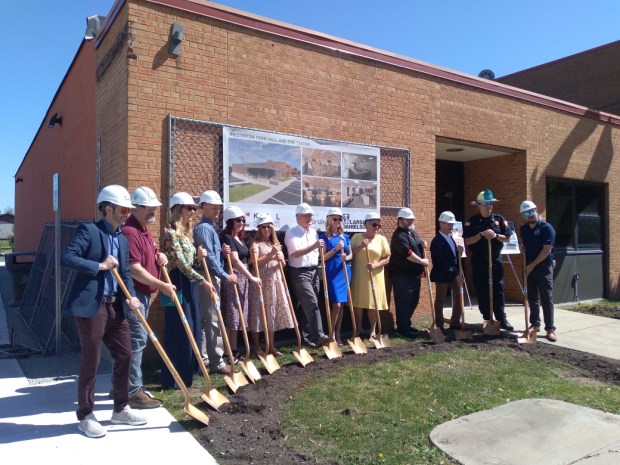The Illinois Supreme Court on Tuesday heard arguments in one of Chicago’s most closely-followed low-level felony cases when attorneys for Jussie Smollett appeared before the state’s highest court in Springfield seeking to overturn his convictions nearly three years after he was convicted of staging a fake hate crime.
The former “Empire” actor was convicted by a jury of five of six counts of disorderly conduct in December of 2021 for lying to the police on Jan. 29, 2019 when he reported that two men attacked him in the Loop, hitting him, yelling homophobic slurs and placing a noose around his neck. He was sentenced to 150 days in jail, 30 months of probation and $130,160 in restitution.
But Smollett has yet to serve the sentence, as a lengthy appeal has wound its way through the system. A lower court previously affirmed the convictions in a 2-1 decision, but the Supreme Court agreed to hear the case in possibly the actor’s last chance to avoid a stint in jail and have his convictions wiped away.
Largely at issue throughout the appeal has been a decision by the Cook County state’s attorney’s office to drop charges against Smollett, a move that at the time embroiled State’s Attorney Kim Foxx and her office in controversy.
On Tuesday, Supreme Court justices fired questions at attorneys for both Smollett and the state, digging into the matter of what constitutes an agreement with prosecutors.
“Prosecutorial agreements that induce a defendant’s specific performance should be enforced irrespective of how unpopular a defendant is in the public eye,” Smollett’s attorney Nenye Uche said during the proceeding in the the state capital. “In essence, we harken back to the age-long principal of a deal is a deal.”
Cook County prosecutors had charged Smollett with disorderly conduct for concocting the hoax with brothers Abimbola and Olabinjo Osundairo, who testified that he paid them to perpetrate the attack, but about a month later, they dropped all counts against him noting that he forfeited his $10,000 bond and had done community service. Foxx previously handed the case to deputies, saying she had recused herself.
Former Cook County Judge Michael Toomin appointed Dan Webb, a former U.S. attorney, as special prosecutor amid scrutiny around the decision, finding, among other things, that Foxx had improperly recused herself. Webb eventually refiled charges.
Smollett’s attorneys have argued that the dropped charges amounted to an agreement between prosecutors and the actor, and that double jeopardy had attached when Smollett forfeited the bail money, though attorneys for the state contended that prosecutors who drop charges are not precluded from refiling charges in the same case.
The appellate court largely sided with the state, though one justice dissented arguing that “Smollett gave up something of value, community service and bond forfeiture, in exchange for a nolle of the whole indictment.”
Sean Wieber, a special assistant attorney general, told the justices that there is no court record of a non-prosecution agreement between the state and Smollett. He also noted the community service Smollett did was prior to the dropped charges and not a forward-looking punishment.
“During the two-week trial, the jury was presented with an overwhelming amount of evidence that established the defendant orchestrated a fake hate crime and falsely reported it to the CPD as a real hate crime,” Wieber said.
Uche, though, argued that Smollett gave up his property, in the form of the money. He noted that the money was never returned to his client.
“This case is even more heightened by the fact that … the government has essentially walked into court and converted a citizen’s property and walked away with it,” Uche said, “They want to keep his money and prosecute him so imagine the dangers for our criminal justice system where prosecutors will be essentially conducting illegal takings for the government.”
Justice Elizabeth Rochford raised the issue to Wieber, saying, “What he did do was exchange something of value, his time in community service and the $10,000 bond.”
Wieber has said Smollett voluntarily surrendered the funds.
The justices also questioned Uche about evidence supporting his contention that Smollett had entered into an agreement with prosecutors.
“I noticed that your opponent made the argument that there was no evidence in the record to support the agreement you talk about,” Justice P. Scott Neville asked Uche.
Uche replied that the prosecutors in court stated that Smollett had agreed to forfeit the bond.
Uche, though, left the door open for an evidentiary hearing in a lower court if there are factual disputes.
“Even if I disagree and it should be reversed, and I humbly ask for that, but even if this court was to say, we’re not sure, we want to know what happened, we’re okay with an evidentiary hearing,” he said.



